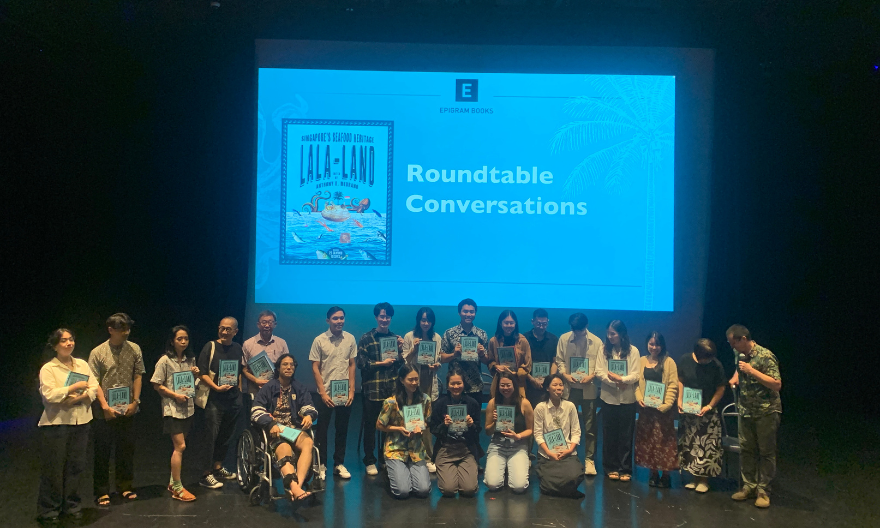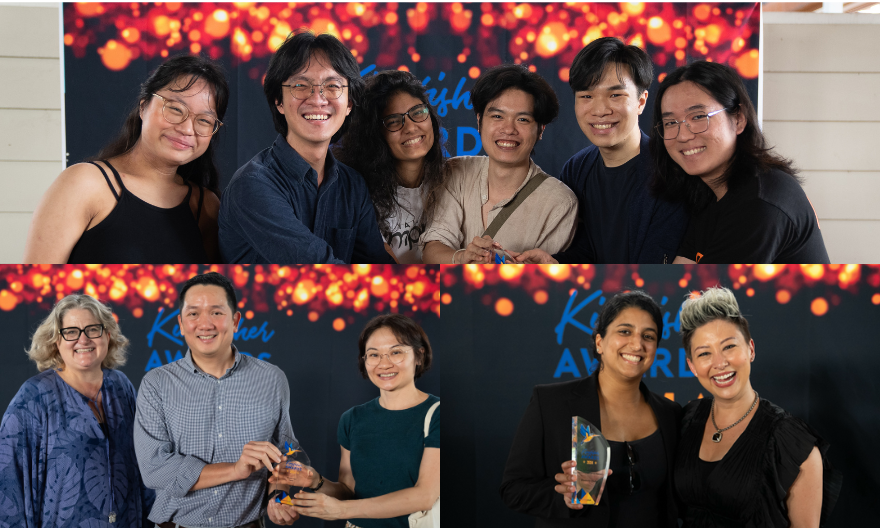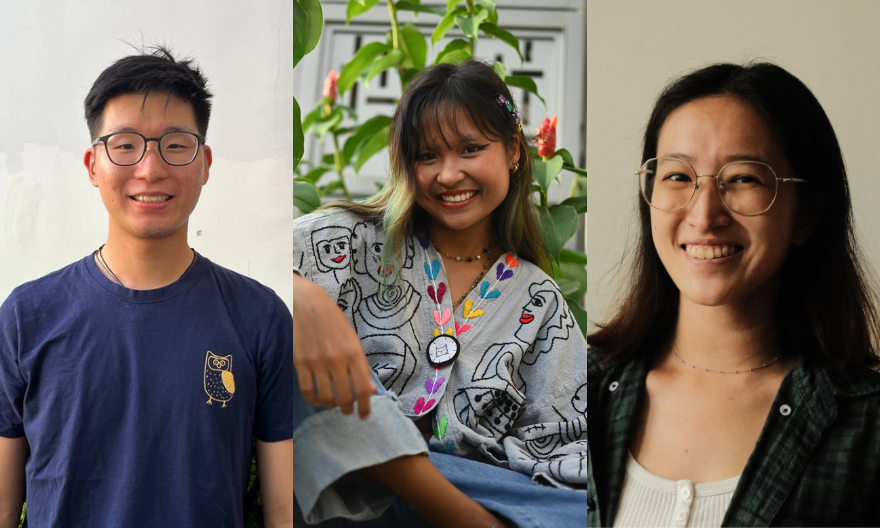Esteemed Yale visiting faculty share illuminating insights about their research
Visiting Professor Woo-Kyoung Ahn delves into the study of confirmation bias and her approach to testing it
 Visiting Professor Woo-Kyoung Ahn (on the right) and the organiser of the talk series, Associate Professor Neil Clarke, Rector of Cendana College. Image taken by U Dharshini for Yale-NUS College.
Visiting Professor Woo-Kyoung Ahn (on the right) and the organiser of the talk series, Associate Professor Neil Clarke, Rector of Cendana College. Image taken by U Dharshini for Yale-NUS College.
As part of a series of talks at Cendana Residential College in Yale-NUS, esteemed faculty members from Yale University shared their research interests and experiences with the College community. These informal talks provided a unique opportunity for the Yale-NUS community to learn from leading experts in their fields, ask questions, and gain valuable insights into the latest research and academic trends. The talks are aimed at fostering a culture of intellectual curiosity and academic excellence, a cornerstone of the Yale-NUS College experience.
The first three talks of the series, which began on 9 February, featured Yale Stanley Woodward Professor of History Valerie Hansen, Richard M. Colgate Professor of Psychology Marvin Chun, and Associate Professor of Sociology, International Affairs and History Jonathan Wyrtzen. Professor Hansen delved into China’s age of exploration, using shipwrecks as a lens to investigate the topic. Visiting Professor Marvin Chun held an open conversation and shared insights on the intersection of psychology, neuroscience, artificial intelligence, and elite performance, while Visiting Associate Professor Jonathan Wyrtzen explored the impact of colonial intervention on political spaces in North Africa and delved into the colonial transformation of these spaces and how their legacies continue to affect our present.
The fourth and concluding talk of the series was held in early March this year, featuring Yale John Hay Whitney Professor of Psychology, Visiting Professor Woo-Kyoung Ahn, who presented her research on confirmation bias and delved into other intriguing topics within the field of psychology, creating an engaging and thought-provoking experience for all attendees.
Prof Ahn began the talk with an interactive exercise, commonly known as the Wason’s 2-4-6 task in the field of Psychology. The exercise required students to identify the rule behind a sequence of three numbers. This test mimicked an experiment conducted by Peter Wason in the 1960s, which aimed to demonstrate the concept of confirmation bias.
Prof Ahn highlighted the results of Wason’s experiment, which revealed that individuals often provide numbers that confirm their hypothesis of what the rule is, instead of attempting to disprove their belief. She suggested that instead of solely attempting to confirm one’s belief, it is essential to provide a case where the numbers falsify the hypothesis, as this can be a more effective way to test the validity of one’s belief.
“It is when you realise that your hypothesis is wrong, you can discover the truth,” elaborated Prof Ahn.
 Abery Chan (Class of 2024) participating in Wason’s 2-4-6 task. Image taken by U Dharshini for Yale-NUS College.
Abery Chan (Class of 2024) participating in Wason’s 2-4-6 task. Image taken by U Dharshini for Yale-NUS College.
During her lecture, Professor Ahn shared details of her own research on confirmation bias. Her team designed a simulated saliva test to examine whether participants demonstrated confirmation bias in relation to their risk of developing major depression. The participants were randomly assigned a result of either having a genetic predisposition for depression or not. Afterward, they were asked to complete a questionnaire commonly used to diagnose depression. The results were significant, as those who were informed of their supposed predisposition to depression exhibited an elevated score on the questionnaire.
These findings have important implications not only for the study of confirmation bias, but also for the utilisation of self-reporting in the diagnosis of mental illnesses and the potential impact of a diagnosis on an individual’s well-being.
A significant portion of the talk was dedicated to an interactive Question-and-Answer session, where students had the opportunity to pose questions on various topics in the field of Psychology. The students expressed curiosity in a range of areas, such as genetic profiling, effective strategies for overcoming procrastination, and the intriguing concept of “illusion of fluency.” This phenomenon refers to the cognitive process that can occur when observing someone else perform a task with apparent ease, leading one to believe that they too possess the same level of ability or understanding.
This segment provided a valuable opportunity for students to engage with Prof Ahn and deepen their understanding of these psychological phenomena. Through their questions, students gained insight into the complexities of these topics and potential implications for their own lives.
 The talks provided a welcoming and cozy setting to encourage personal and meaningful discussions. Image taken by U Dharshini for Yale-NUS College.
The talks provided a welcoming and cozy setting to encourage personal and meaningful discussions. Image taken by U Dharshini for Yale-NUS College.
Overall, the series encompassed an extensive range of academic disciplines and subjects, providing a diverse array of topics for the attendees to explore. Each session offered insights and perspectives from leading scholars and experts in their respective fields. The events were attended by students from diverse academic disciplines and backgrounds, providing a unique opportunity for individuals with different interests and perspectives to come together and engage with these important topics.
Phillip Zhou, an exchange student from Amherst College, attended all four events as he was intrigued by the faculty’s motivations for pursuing their research in Singapore.
“The informal nature of the events allowed students to ask a variety of questions including discipline specific question, but also general questions such as getting to know how their research matters in a broader context,” he shared.
This series of talks paved the way for the continued exchange of ideas and forged deeper connections between Yale University and Yale-NUS College, as the Yale-NUS community benefitted from the insights shared by the visiting Yale professors.





